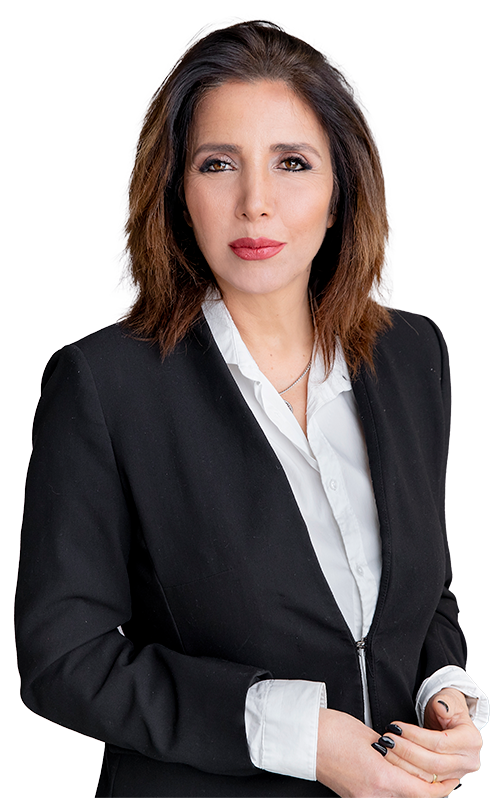Handwritten will
Every person can draw up a handwritten will independently and without costs
The entire will must be written in the testator’s handwriting, include a date and be signed by him
A handwritten will is a will written in the testator’s handwriting.
• This type of will can be drawn up without witnesses or a lawyer, therefore it is the easiest and simplest way to prepare a will – anyone can draw it up independently and without costs.
• However, due to the absence of witnesses to the drafting of the will, it is easier for those who are not satisfied with it, to try to dispute its authenticity and the opinion of the testator when it was written.
The rules for making a handwritten will
1. The entire will must be written in the testator’s handwriting.
2. Do not print the will on a typewriter or computer.
3. The handwriting must be of the mitzvah only and not of any other person.
4. The date on which it was written must be noted on the will, in the handwriting of the testator. Writing the date is required because only the last will is valid.
5. The testator’s handwritten signature must appear on the will.
the subject of the will
• According to the law, the executor of the will may assign (bequeath) to one or several winners (heirs):
• His entire estate, or a proportional part of his entire estate.
• An asset from the assets of his estate, or a benefit from his estate (called a “portion”), for example – a picture or a plot of land.

| Main topics | details |
| Definition | A handwritten will is a will that is written by hand according to the will of the testator. |
| Legality and validity | The handwritten will can be legal and valid, but specific conditions must be met. |
| Procedures | to submit the will to the relevant court, when it will be presented to it and denied before a judge. |
Appointment of an estate manager
• It is also possible to include in the will a provision on the appointment of an estate manager who will be responsible for the distribution of the estate (inheritance) among the various heirs. You can even name the estate manager.
tip
Appointment of an estate manager is not mandatory. The appointment requires complex procedures that in a significant number of cases are not essential, and even require additional expenses, such as: payment of fees to the estate manager. It is advisable to seriously consider whether there is indeed a need to appoint an estate manager, and do so only if there is a real and actual need for it.
Important Information
• Despite the rules detailed in the law, the legislator was aware that there may be situations in which all the rules for drawing up a will will not be met.
• Since the goal is to respect the will of the deceased and reduce as much as possible situations in which technical defects prevent this, the law allows the court to uphold the will despite these defects.
• The guiding principle is that in case it is possible to determine what the will of the mitzvah is, an effort will be made to overcome formal defects in the will.
• It is possible, but there is no obligation, to deposit the will with the registrar of inheritance.
A testament to witnesses
A witness will is a will made in the presence of at least two witnesses
Witnesses, and their spouses, are not allowed to be part of the beneficiaries of the will
A will with witnesses is a will drawn up in the presence of two people, whom the mitzvah (the writer of the will) determined to be the witnesses to his will (“witnesses of existence”).
• The presence of the witnesses is intended to prove the truth of the will and that it was made of the testator’s free will.
• A will can be drawn up by witnesses without the need for the presence or signature of a lawyer, similar to a handwritten will, and only the signature of the two witnesses is needed.
The witnesses to the will do not need to know what the content of the will is and whether the will is clear in his mind, but only to witness the actual drafting of the will.
| Main topics | details |
| Definition | A witness will is a will written in the presence of two witnesses and the testator. |
| Legality and validity | The will must be signed by the testator and by two witnesses with appropriate probability. |
| process | The testator must sign the will while reading it in front of the witnesses. |
Who can act as a witness to a will?
• While making a will with witnesses, the witness must meet all the following conditions:
1. Over the age of 18.
2. Not declared invalid.
3. He or his spouse does not benefit from the will.
• The mitzvah did not command him (or his spouse) anything within the will.
• If the testator commanded something to the person who served as a witness to the will or to the witness’s spouse, the instruction in the will in favor of the witness or his/her spouse is void.
The rules for making a will with witnesses
• In order to draw up a will with witnesses that will be binding, you must act according to the following order:
1. The will must be written (handwritten, or printed).
2. The date on which it was made must be written on the will (this can also be written by hand or printed).
3. The testator must declare in front of two witnesses that the will placed in front of him, which he is about to sign, is indeed his will (he can declare this in the words he chooses).
4. After the declaration, the testator signs the will in his handwriting in front of the two witnesses.
5. The witnesses must confirm at the same time (immediately after the declaration of the will and his signature on the will) that the testator stated that this was his will and signed the will in front of them. The confirmation of the witnesses must be in writing and signed by their handwriting on the will.
• It is advisable to sign each of the pages of the will (as well as sign next to each amendment, if made).
• It is important to make sure that the drafting of the will is done according to the order and that all these actions are performed at the same time (that is, on the same occasion and not at different periods of time).
• An example of a will with witnesses (courtesy of the association “The Law in the Service of Old Age”).

the subject of the will
• According to the law, the executor of the will may assign (bequeath) to one or several winners (heirs):
• His entire estate, or a proportional part of his entire estate.
• An asset from the assets of his estate, or a benefit from his estate (called a “portion”), for example – a picture or a plot of land.
Appointment of an estate manager
• It is also possible to include in the will a provision on the appointment of an estate manager who will be responsible for the distribution of the estate (inheritance) among the various heirs. You can even name the estate manager.
tip
Appointment of an estate manager is not mandatory. The appointment requires complex procedures that in a significant number of cases are not essential, and even require additional expenses, such as: payment of fees to the estate manager. It is advisable to seriously consider whether there is indeed a need to appoint an estate manager, and do so only if there is a real and actual need for it.
Important Information
• Despite the rules detailed in the law, the legislator was aware that there may be situations in which all the rules for drawing up a will will not be met.
• Since the goal is to respect the will of the deceased and reduce as much as possible situations in which technical defects prevent this, the law allows the court to uphold the will despite these defects.
• The guiding principle is that in case it is possible to determine what the will of the mitzvah is, an effort will be made to overcome formal defects in the will.
• It is possible, but there is no obligation, to deposit the will with the registrar of inheritance.
Will before an authority
A will before an authority is a will that is submitted to a legal entity or drawn up through it
Drafting a will before an authority involves paying a fee
A will before an authority is a will that is submitted to or made through an official.
• The official (“authority representative”) can be a judge, a member of a religious court, a registrar of a court, a registrar for inheritance matters or a notary.
• There are two ways to make a will before an authority:
1. When the testator says the words of the will orally in front of the authority’s representative.
2. When the testator submits (himself) the written will to the representative of the authority.
| Main topics | details |
| Definition | A will before an authority is a will drawn up before a judge or a guardian appointed by him. |
| process | Approval is required from the local or higher authority, depending on the amount of the main assets. |
The rules for drafting a will before an authority
• The testator will tell the authority’s representative his will, or submit it to him in writing.
• If the testator says the words of the will orally, the representative of the authority will record the will and read it to the testator.
• If the testator submits a will written in a language he does not understand (for example, if a notary made a will in Hebrew for a testator who does not know the language):
• The authority’s representative is obliged to read the will to the testator in a language he understands, using a translator.
• The testator may read the will or its translation himself, instead of having the authority’s representative do so.
• The testator will state that this is indeed his will (there is no need for his signature on the will).
• The authority’s representative will confirm on the will that it was registered and that the testator stated that it was his will.
the subject of the will
• According to the law, the executor of the will may assign (bequeath) to one or several winners (heirs):
• His entire estate, or a proportional part of his entire estate.
• An asset from the assets of his estate, or a benefit from his estate (called a “portion”), for example – a picture or a plot of land.
Appointment of an estate manager
• It is also possible to include in the will a provision on the appointment of an estate manager who will be responsible for the distribution of the estate (inheritance) among the various heirs. You can even name the estate manager.
tip
Appointment of an estate manager is not mandatory. The appointment requires complex procedures that in a significant number of cases are not essential, and even require additional expenses, such as: payment of fees to the estate manager. It is advisable to seriously consider whether there is indeed a need to appoint an estate manager, and do so only if there is a real and actual need for it.

Drafting of a will before the registrar of inheritance matters
• A will can be drawn up before the registrar of inheritance matters at the Ministry of Justice.
• The service involves paying a fee.
Important Information
• Despite the rules detailed in the law, the legislator was aware that there may be situations in which all the rules for drawing up a will will not be met.
• Since the goal is to respect the will of the deceased and reduce as much as possible situations in which technical defects prevent this, the law allows the court to uphold the will despite these defects.
• The guiding principle is that in case it is possible to determine what the will of the mitzvah is, an effort will be made to overcome formal defects in the will.
• It is possible, but there is no obligation, to deposit the will with the registrar of inheritance.
Oral will
A person who is about to die can say his will orally in the presence of two witnesses
An oral will is a will that is said orally by the testator, in front of two witnesses, without him himself having to prepare any written document.
• This option is intended for cases where a person has no ability, due to his condition, to make a will in one of the other three ways (a handwritten will, a will with witnesses or a will before an authority).
Who is allowed to command orally?
• A dying person, who is on his deathbed and is about to die.
• A person who sees himself in the face of death, that is, he feels that his life is in danger and objectively he is indeed in such a situation.
example
A soldier in battle, a sailor in a storm, a person who experienced a severe earthquake, etc.
| key issues | Details |
| definition | An oral will is a will that can be heard and understood orally, but is not written. |
| proof | Testimony or evidence is required to prove the will in case of problem or doubt. |
The rules for drafting an oral will
• A person who is on his deathbed or sees himself in the face of death, may command orally in front of two witnesses who understand his language.
• The witnesses should make as accurate a record as possible of the words of the mitzvah in the ‘Memorial Devarim’, as soon as possible after they were told.
• The witnesses must sign the ‘memory of things’, which is actually the will, and deposit it with the registrar of inheritance matters.
pay attention
• If a month has passed since the circumstances for which an oral will was necessary have passed and the mitzvah is still alive, the oral will is annulled.
• In an oral will, unlike the other ways in which a will can be drawn up, the witness or his spouse can be the beneficiaries (heirs) of the will.
the subject of the will
• According to the law, the executor of the will may assign (bequeath) to one or several winners (heirs):
• His entire estate, or a proportional part of his entire estate.
• An asset from the assets of his estate, or a benefit from his estate (called a “portion”), for example – a picture or a plot of land.
Appointment of an estate manager
• It is also possible to include in the will a provision on the appointment of an estate manager who will be responsible for the distribution of the estate (inheritance) among the various heirs. You can even name the estate manager.
tip
Appointment of an estate manager is not mandatory. The appointment requires complex procedures that in a significant number of cases are not essential, and even require additional expenses, such as: payment of fees to the estate manager. It is advisable to seriously consider whether there is indeed a need to appoint an estate manager, and do so only if there is a real and actual need for it.

Important Information
• Despite the rules detailed in the law, the legislator was aware that there may be situations in which all the rules for drawing up a will will not be met.
• Since the goal is to respect the will of the deceased and reduce as much as possible situations where technical defects prevent this, the law allows the court to uphold the will despite these defects.
• The guiding principle is that in case it is possible to determine what the will of the mitzvah is, an effort will be made to overcome formal defects in the will.
mutual wills
Spouses may write wills that rely on each other
The ability to revoke wills is limited by law
Spouses may write mutual wills.
• Similar to non-reciprocal wills, it can be made in the following ways: handwritten, in front of witnesses, in front of an authority or orally.
• These are wills that rely on each other.
example
A man can bequeath all his property to his wife upon his death, when he knows that his wife has prepared a will in which she bequeaths all her property to him upon her death.
• The ability to cancel mutual wills is limited (details below).
• In addition, spouses can determine that only after the death of the last of them, their property will pass to the children. In these cases, a “mutual will” can prevent a situation where a surviving widow or widower will be forced to vacate their apartment, because the other heirs will ask to sell the apartment and receive their share.
• The spouses can determine that the remaining spouse will be allowed to do with what he received as he sees fit, or establish instructions that limit the surviving spouse from doing certain actions in the estate.
• A mutual will can be made in two separate documents or in one common document.
• The procedure for depositing a mutual will is the same as the procedure for depositing any written will and requires the presence of both parties, equipped with identification documents.
| key issues | Details |
| definition | Depositing a will is an operation in which the document of the will is deposited with the registrar of inheritance. |
| purpose of deposit | Depositing a will may serve the purpose of executing the will after the testator’s death. |
Cancellation of mutual wills
• If there is no other provision in the will, mutual wills can be revoked under these conditions only:
• When both testators are alive – it is sufficient to send a written notice to the other spouse announcing the cancellation of the will and then both wills are canceled.
• In the event of the death of one of the spouses – if the estate has not yet been divided, the inheriting widower will have to give up his share in the estate to cancel the mutual will. If the estate has already been divided in practice, the widower will have to return what he inherited from the deceased spouse.
• Other options for revoking the will can be determined in the will according to the will of the spouses, but the right to revoke the will cannot be waived during the lifetime of both spouses.
Execution of mutual wills
• In order to exercise the wills, an application must be submitted for a will enforcement order.

Securing Your Family’s Future: Trust Rachel Schachar Law & Notary Firm for Inheritance and Wills Expertise
When it comes to navigating the intricate terrain of family law and inheritance matters, you deserve the expertise and guidance of a seasoned professional. Look no further than Rachel Schachar Law & Notary Firm, where our dedicated team of legal experts, led by Rachel Schachar herself, stands ready to assist you in securing your family’s future. With a profound understanding of the intricacies surrounding inheritance and wills, our firm has earned a stellar reputation for providing comprehensive, tailored solutions to our clients. We take pride in simplifying complex legal processes, ensuring your peace of mind during what can be emotionally challenging times. Trust in our experience, commitment, and unwavering dedication to protecting your family’s legacy. Your future deserves nothing less than the expertise found at Rachel Schachar Law & Notary Firm.




